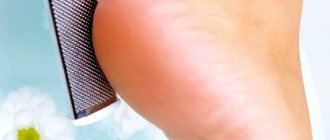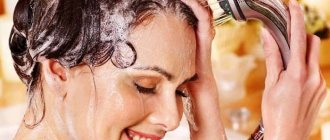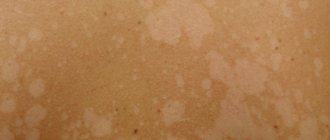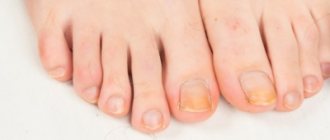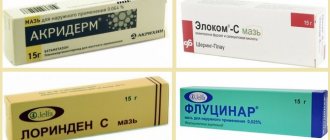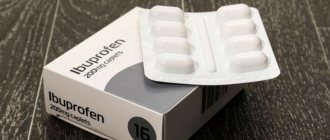Successful treatment of inflammation of the maxillary sinuses involves, in most cases, the need to get rid of the infection first. Restoring normal drainage and accelerating the outflow of mucous secretions brings the healing process closer.
What therapeutic method to choose and what medications to take - the otolaryngologist makes such decisions based on the severity of the disease, its original cause and form. Quite often, certain tablets for sinusitis are prescribed, combined with local therapy options - drops, sprays, inhalations and rinses.
It is the otolaryngologist who decides which pills to take for sinusitis
Sinusitis: identify to cure
Before looking for an effective cure for sinusitis, it must be identified. The symptoms of sinusitis are quite specific and it is not so difficult to do:
- headache;
- constant runny nose;
- difficulty breathing;
- temperature 38 degrees;
- general weakness.
At a doctor’s appointment, sinusitis is checked this way: the patient slowly leans forward. A nagging pain to the right and left of the wings of the nose indicates sinusitis. For a reliable diagnosis, an x-ray is performed: accumulations of pus are visible in the image.
Symptoms of sinusitis
https://www.youtube.com/watch?v=l8wbh9ye9oY
The three stages or forms of sinusitis vary in the severity of symptoms:
- Subacute lasts more than a month, similar to a cold.
- Acute lasts up to a month during the epidemic season, all symptoms are pronounced.
- Chronic is constantly present, either fading or exacerbating with a cycle of 6-8 months.
Different reasons can cause different types of sinusitis with differences in the color of the mucus and the necessary treatment:
| View | Features of discharge | Causes | Peculiarities |
| Viral | Colorless, without pus and blood | ARVI | Easily treated, but without treatment it becomes bacterial |
| Bacterial | With yellow to dark green pus | Entry of foreign objects; diseases of teeth and gums; with weak immunity | Can be caused by a variety of bacteria and requires treatment |
| Fungal | Pus with an unpleasant odor, sometimes blood | Antibiotic use, weakened immune system | Aggravated in combination with bacteria or viruses, can provoke polyps |
| Traumatic | With blood clots | Head injuries | The cause of sinusitis is not mucus, but blood blocked in the sinus after injury |
Main causes of sinusitis
What is sinusitis and how to treat it
With sinusitis, the sinuses, which are located to the right and left of the bridge of the nose, become inflamed. The hole that connects them to the nose is blocked. Mucus and germs remain in the sinuses. Inflammation can have different causes and differ in the nature of its course. Whether the disease is viral, bacterial or fungal, in each case the doctor prescribes his own medicine for sinusitis.
The disease is severe when both sinuses become inflamed. Sometimes left-sided or right-sided sinusitis occurs. At the same time, the headache becomes unbearable when tilting and turning the head. In addition, there is a list of characteristic symptoms:
- nasal congestion;
- temperature increase;
- purulent discharge;
- distension in the nasal area.
At the initial stage, agents are used that relieve swelling and make breathing easier. Most often these are vasoconstrictor drops. If the disease is accompanied by some kind of infection, the doctor prescribes antibiotic therapy. Physiotherapy, which improves blood circulation in the sinuses, gives good results. For these procedures, laser, electromagnetic field, and electrophoresis are used.
With chronic sinusitis, depressions appear in the mucous membrane in which pus accumulates. This sharply worsens all symptoms. To alleviate the patient's condition, they resort to puncturing a hole through which the pus is sucked out. However, modern medications make it possible to treat sinusitis without a puncture. These include anti-inflammatory antibiotics.
What happens if sinusitis is not treated? The chronic form of the disease causes serious complications that are poorly treated. Inflammation of bone tissue is possible, blood poisoning, eye and throat diseases are possible. The maxillary sinuses are located near the brain. There is a possibility that inflammation of its membrane will occur - meningitis and even death.
- Blackcurrant pureed with sugar for the winter
- What diseases does beaver stream treat?
- Penalty for xenon in car headlights
Antibacterial agents
For the treatment of sinusitis in adults, antibacterial agents (Amoxicillin, Bioparox, Panclave, Amoxiclav, Cefaclor) must be used. Most often they come in tablets or capsules.
Such drugs actively destroy the pathogenic microflora of the nasal mucosa and maxillary sinuses, thereby completely stopping the process of its degenerative changes. All this allows you to avoid the further formation of adhesions or a decrease in the intensity of smell. In addition, they suppress infection, eliminate the development of inflammation, and reduce body temperature.
An otolaryngologist should treat sinusitis. Only he is able to choose the most appropriate antibacterial drug after examining the discharge from the nose and pharynx and determining sensitivity to antibiotics.
Under no circumstances should you take these medications uncontrollably. They will not bring any effect, but will only create a strain of resistant pathogenic microorganisms. The disease will be neglected or become chronic.
Drops with an antibacterial effect are also available. These include Garazon, Protargol, Isofra, Polydexa. They should be used depending on the doctor’s prescription, since each of them has special properties. Some of them contain antihistamines, others have an anti-inflammatory effect, and others have a pronounced mucolytic effect.
The most popular remedies for sinusitis
The following medications are most often used to treat sinusitis at home:
- Nasal drops - Galazolin, Naphthyzin - drugs of the adrenomimetic group, have a pronounced vasoconstrictor effect, they are prescribed for acute inflammation of the nasal mucosa for the treatment of rhinitis, sinusitis or sinusitis in adults and children. Doctors warn that these drugs have only a symptomatic effect, do not destroy bacteria, and can only bring temporary relief to the patient. They are not recommended to be used for more than 3 days in a row, as they are addictive.
- Sinuforte is one of the most effective modern drugs for the treatment of sinusitis. It is created on the basis of natural plant components, such as cyclamen, it is not absorbed into the blood and begins to act very quickly - it stimulates reflex secretion in the mucous membrane of the nose and sinuses, due to this, the drainage of the contents of the paranasal sinuses is enhanced, they are cleansed and freed from mucus. Sinuforte is considered one of the best remedies for the treatment of sinusitis; it is prescribed to adults and children over 12 years of age in the form of sprays or drops for intrapartum administration.
- Sinupret is a combination product based on herbal preparations, has an anti-inflammatory and anti-edematous effect, thins and accelerates the secretion of mucus, in addition, Sinupret accelerates the regeneration of the mucous membrane and restores its protective properties. Sinupret is prescribed for sinusitis in adults and children over 2 years of age in the form of pills or tablets or drops for oral administration. There are no other dosage forms of the drug.
- Polydex is a combination drug that contains the antibacterial agents neomycin and polymyxin B and the anti-inflammatory agent dexamethasone. The drug has proven effective in treating most bacterial infectious diseases of the nasal passages and external auditory canals. It is used for the treatment of acute and chronic sinusitis in the form of a nasal spray in adults and children over 2 years of age.
Today, a huge number of different medicines and their analogues have been created for the treatment of sinusitis; it is quite difficult even for a specialist to understand all this diversity and prescribe the appropriate treatment to the patient. Therefore, you should not try to treat this dangerous disease yourself, at home, without consulting a doctor, this can lead to the development of complications or chronic inflammation.
Antibiotics
Drugs in this group are most often prescribed for the treatment of acute sinusitis. In order to choose the right remedy, it is necessary to determine the causative agent of the disease. But in most cases, drugs in this group are prescribed based on indications (presence of purulent discharge, increased body temperature).
Along with other antibiotics, penicillins are used in the treatment of sinusitis.
Initially, the strongest drug is chosen, which is hypothetically able to cope with the disease. The drug of choice is drugs with a broad spectrum of action that actively act on most pathogenic bacteria that could lead to the development of the disease.
Antibiotics of the following groups are used against sinusitis:
- Penicillins (Amoxiclav, Augmentin, Flemoxin, Amoxil).
- Macrolides (Azithromycin, Sumamed, Josamycin).
- Cephalosporins (Ceftriaxone, Emsef, Cefazolin).
- Fluoroquinolones (Ofloxacin, Norfloxacin, Ciprofloxacin).
For severe forms of sinusitis, antibiotics are prescribed in the form of solutions for intramuscular or intravenous administration. If the disease is not so severe, tablets, capsules or syrups are used. Inhaled antibiotics can also be used for treatment.
The duration of therapy depends on the course of the disease. The acute form is treated for 5–7 days, the chronic form – up to two weeks.
The use of antibiotics can cause side effects such as indigestion, nausea, vomiting, and headache. But despite this, antibiotics are truly the best remedy for bacterial sinusitis.
In order to minimize the negative impact of these drugs on the body, drugs are prescribed in combination with them to restore normal intestinal microflora: Linex, Lactovit, Lactiale. Antifungal agents are also often used in the complex treatment of sinusitis.
Vasoconstrictor medications for sinusitis can reduce swelling of the nasal mucosa and facilitate the release of purulent contents from the maxillary sinuses. The drugs are most often used to treat sinusitis at home.
During treatment, local vasoconstrictors with different durations of action can be used
During therapy, products containing the following active substances are used:
- Oxymetazoline (Nazivin, Nazol, Noxprey). Their effect begins to develop 10–15 minutes after administration and lasts up to 12 hours.
- Xylometazoline (Galazolin, Evkazolin). The drugs begin to act 5 minutes after administration, the effect lasts up to 6 hours.
- Naphazolin (Naphthyzin, Sanorin). The effect of drugs in this group begins to appear 10–20 minutes after use.
Before administering vasoconstrictor drugs, it is necessary to rinse the nose. Antibiotic drops are used after the previous medicine begins to act, in which case the effect of its use is enhanced.
For the treatment of sinusitis the following are used:
- hypertonic saline solutions;
- isotonic saline solutions;
- antiseptics.
A procedure such as rinsing the nasal cavity allows you to moisturize the nasal mucosa and reduce its swelling, helping to remove clots of purulent secretion.
Therapy for sinusitis includes rinsing the nose with hypertonic and isotonic saline solutions
During therapy, both solutions prepared at home and pharmaceutical products, most often based on sea salt, can be used. Microelements that are part of sea water stimulate reparative processes, have an anti-inflammatory effect, improve the function of the ciliated epithelium, which leads to increased resistance of the nasal mucosa to the introduction of pathogenic viruses and bacteria, and also promotes its cleansing.
The most effective preparations based on sea water: Morenazal, Marimer, Aqua Maris, Physiomer, Fluimarin, Sialor aqua.
The main purpose of therapy is to relieve inflammation in the sinuses, as well as to ensure the drainage of mucus, which will destroy the infection and relieve pain. Therefore, treatment should be carried out in combination, and not be limited to the choice of one drug.
In the vast majority of cases, medications can only help if the nature of sinusitis is bacterial. Depending on the neglect of a person’s condition, treatment in adults can last from several days to 2-4 weeks.
First of all, for inflammation of the maxillary sinuses, the following pharmaceuticals are prescribed:
- vasoconstrictor drops - reduce the outflow of mucus;
- antibiotics - fight bacteria;
- mucolytics - prevent the accumulation of mucus;
- analgesics - pain relief;
- corticosteroids - reduce inflammation in the sinuses.
The use of these drugs in combination allows you to get rid of sinusitis in the shortest possible time, thereby preventing it from becoming chronic. All medications are prescribed exclusively by a doctor after diagnosing and studying the patient’s medical history.
Let's look at each group of medications separately and try to choose the most effective remedy for sinusitis.
Mocolytics, thanks to their active substances, prevent the formation of new mucus in the maxillary sinuses, and also contribute to its liquefaction, which leads to a better outflow of contents from the sinuses. It is recommended to use these drugs together with antibacterial therapy and physiotherapy to achieve the best effect.
The most commonly prescribed mucolytics are:
- Mucodin;
- Fluimucil;
- Fluditek.
Mucolytics are produced in the convenient form of syrups and drops. If the instructions are followed, they contribute to a faster recovery and also do not contain side effects.
If, after reading this article, you think that you have symptoms characteristic of this disease, then you should
How to cure sinusitis forever? To do this, it is important to take medications for sinusitis, folk remedies, and perform physical therapy. Prevention of sinusitis plays an important role. Popular medications include:
- Rinofluimucil in the form of a spray to relieve swelling.
- Naphthyzin nasal drops to ease breathing.
- The hormonal agent Polydex in the form of a spray improves the outflow of pus.
- Sinupret is taken in tablet form - it is a good antiviral agent.
Don't forget about rinsing and moisturizing
Treatment of sinusitis with medication necessarily includes drops and sprays to cleanse and moisturize the mucous membrane. They have no contraindications and can be used at any age. It is advisable to use such preparations several times a day, especially before using other topical nasal remedies. This application will increase the effectiveness of the latter. The most popular representatives of sea water-based products:
- Humer,
- Aqua Maris,
- Marimer.
There is no perfect drug. The best cure for sinusitis will be different in each individual case. After all, it should not only effectively treat the disease, but also be well tolerated by the patient without causing side effects. Therefore, the selection of drugs for the treatment of this difficult disease is carried out on an individual basis.
Antibiotic therapy
Such medications are prescribed to be taken only when the disease is of bacterial origin. If you take antibiotics for other forms of this disease, you can get unpleasant side effects from such therapy.
Inflammation of the mucous membrane of the paranasal sinuses of bacterial origin develops when bacteria such as streptococci, pneumococci, and staphylococci multiply on it. This usually happens against the background of reduced immunity.
That is why a good remedy for sinusitis of bacterial origin should contain exactly those active ingredients to which certain pathogens are sensitive.
Today, in order to get rid of this unpleasant disease, the following groups of antibiotics are used:
- penicillin series;
- cephalosporins;
- macrolides;
- fluoroquinolones.
In order to destroy and suppress the growth and development of pathogenic bacteria, the following antibacterial drugs are used:
- protected and unprotected antibiotic from a number of penicillins: Amoxicillin, Amoxiclav, etc.;
- an antibiotic from a number of cephalosporins in the form of tablets or substances for injections in ampoules: Ceftriaxone, Cephalexin, etc.;
- in case of allergic manifestations, azalides are chosen: Azithromycin, etc.;
- Mild forms of sinusitis can be treated using topical antibiotics - fusafungin (Bioparox) in the form of a nasal spray. It is effective against most bacteria and has a pronounced anti-inflammatory effect. In case of moderate severity of the disease or purulent stage, the medicine is used in combination with systemic antibiotic drugs.
The most common and popular antibiotics of the new generation include tablets called Macropen, Tsiprolet and Zitrolide. They have a powerful effect. The result of taking them is noticeable already on the first day of treatment.
If the form of the disease is fungal or viral in nature, then the doctor does not prescribe antibiotic tablets for sinusitis, but products with antifungal or antiviral properties.
The best remedies for the treatment of sinusitis
Intranasal
Naphthyzin
A popular brand used in the complex treatment of sinusitis and rhinitis. Available in the form of drops and spray. It is in high demand among buyers due to its low price and large selection of companies producing this medicine.
Active ingredient: Naphazoline. It belongs to alpha2-adrenergic agonists. When used, it constricts the vessels of the nasal mucosa, thereby removing swelling and reducing hyperemia. As a result, it facilitates nasal breathing and improves the patency of the nasal passages.
Directions for use: Intranasally, adults and children over 15 years old, 1-3 drops of 0.05% - 0.1% product, 3-4 times a day
Restrictions: Contraindicated for children under 15 years of age.
Naphthyzin
Advantages:
- Fast action;
- Low price.
Flaws:
- May cause dry mucous membranes;
- With long-term use, the effectiveness of the action decreases.
Sanorin
Another drug that uses Naphazoline as an active ingredient. Available in the form of an emulsion. Additionally, it contains eucalyptus oil, which has an antiseptic effect and improves blood circulation. However, in this case, the amount of oil in the composition is insignificant to have a therapeutic effect, and it is used more to improve the organoleptic properties of the drops.
Sanorin should be used intranasally, 2-3 drops in each nostril, 2-3 times a day.
The product is contraindicated for children under 15 years of age.
Sanorin
Advantages:
- Fast therapeutic effect;
- Low price;
- Eucalyptus oil in the composition;
- Longer action compared to Naphthyzin.
Flaws:
- Long-term use reduces effectiveness;
- May cause dryness and burning of the nasal mucosa.
Xymelin
Nasal spray. Contains xylometazoline.
Xylometazoline was proposed as a replacement for Naphazoline. The structure of its molecule is similar to the above-mentioned drug. The key difference is that the drug is absorbed faster in the body and is practically not absorbed into the blood. Belongs to the class of alpha2-adrenergic agonists. When used, it narrows the capillaries in the nasal cavity, reduces swelling, and facilitates nasal breathing. The effect occurs 2-3 minutes after spraying and lasts for several hours.
It is used in the treatment of rhinitis, sinusitis, including sinusitis. Does not accumulate in blood plasma.
Directions for use: Intranasal, 2 times a day. No more than 7 days in a row.
For children it is produced separately, with a reduced concentration.
Contraindicated for pregnant women.
Xymelin
Advantages:
- Available everywhere;
- The effect of use occurs after a short time.
Flaws:
- Possible unpleasant side effects such as dry nasopharynx;
- Poorly compatible with a large number of drugs, carefully read the contraindications.
Nazivin
Prescribed for vasomotor and allergic rhinitis, as well as complex treatment of acute respiratory viral infections, sinusitis, including sinusitis.
Active ingredient: Oxymetazoline
It is an alpha adrenergic agonist. When applied topically, it narrows the capillaries in the nasal cavity, reduces swelling of the mucous membrane and facilitates nasal breathing. Does not have a systemic effect on the body.
Available in the form of drops, taken intranasally, 2-3 times a day, 1-2 drops in each nasal passage.
Approved for use during pregnancy. Allowed for children in a reduced dosage (available separately, indicating age).
Nazivin
Advantages:
- Has a long-lasting effect;
- Does not irritate mucous membranes;
Flaws:
- There may be a temporary decrease in the ability to perform operations that require increased concentration.
Vibrocil
Nasal spray.
Active ingredients: Phenylephrine and Dimetindene
Phenylephrine belongs to the group of alpha1-adrenergic stimulants. When applied topically, it has an anticongestive effect, facilitates nasal breathing, and reduces swelling of the nasal mucosa. Does not have a systemic effect on the body.
Dimetindene belongs to the group of antihistamines and, together with Phenylephrine, reduces discomfort in the nasal cavity, facilitates the release of mucus from the sinuses and makes breathing easier.
Indications for the use of Vibrocil are quite broad, primarily allergic and vasomotor rhinitis. In the treatment of sinusitis, it is used in combination with other medications.
Available in the form of drops, spray and gel.
Contraindicated for children under one year of age, not recommended for pregnant and lactating women.
It is used intranasally. Children from 1 year to 6 years: 1-2 drops 3-4 times a day.
Children over 6 years old and adults: 3-4 drops 3-4 times a day.
The duration of treatment should not exceed 7 days. If there is no improvement, a repeat visit to the doctor is necessary.
Vibrocil
Advantages:
- Complex long-lasting action due to two active ingredients.
Flaws:
- High price;
- Systemic vasoconstrictor effect.
Local anti-inflammatory therapy (intranasal corticosteroids)
GCS is an abbreviation for “synthetic glucocorticosteroids.” These are steroid hormones that have anti-inflammatory, anti-allergic, anti-shock and immunosuppressive effects on the body.
Prescribed for the treatment of the acute stage of sinusitis, characterized by a violent inflammatory process, a large amount of secretion in the maxillary sinuses, significant swelling of the epithelium of the sinuses and nasopharyngeal mucosa.
Nasobek
The active substance is the corticosteroid beclomethasone. It is considered potent and is prescribed by doctor's prescription. The drug has an anti-inflammatory and anti-allergic effect, reduces the formation of secretions in the sinuses, reduces swelling, and facilitates the removal of toxins from the source of infection.
The drug is produced in the form of a nasal spray. Used intranasally, 3 to 4 times a day, in doses of 50 mcg. One vial contains 200 doses of 50 mcg. The effect of the product does not appear immediately. From the moment of administration to the onset of action, it takes from 16 hours to a day. Beclomethasone has a cumulative effect; after taking the medication, its effect lasts several days until it is eliminated from the body.
Nasobek
Advantages:
- Effective anti-inflammatory effect;
- Low price.
Flaws:
- The effect appears after some time.
Flixonase
Used in complex therapy of sinusitis. Before use, be sure to consult a specialist.
The active ingredient is fluticasone.
Has immunosuppressive and anti-inflammatory effects. Reduces mucus secretion in the sinuses, reduces swelling of the mucous membrane of the upper respiratory tract.
Recommended for children from 4 years old.
Available in the form of a nasal spray. The dose is 50 mcg, 2 times a day in each nasal passage. If the effect occurs, the dosage should be reduced.
One bottle of the product contains 60 doses.
Flixonase
Advantages:
- Fast and gentle action, the effect is felt 60-90 minutes after the first use;
- No significant side effects were noted.
Flaws:
- High price;
- A large number of contraindications.
Avamis
The next brand in the review also contains fluticasone. Produced in spray form by a British pharmaceutical concern.
Often prescribed by doctors for the complex treatment of sinusitis. The effect of the drug is standard for glucosteroid hormones. Avamis has a pronounced anti-inflammatory effect. Can be prescribed to young patients from two years of age.
Available in dosages of 30, 60 and 120 doses. One dose contains 27.5 mgm of substance.
The course of treatment is 7 days. The effect of administration occurs 7-9 hours after the first use and lasts for one and a half to two days after the end of administration.
Avamis
Advantages:
- Pronounced anti-inflammatory effect;
Flaws:
- High price.
Antibacterial
Polydexa
A complex antibacterial drug containing two antibiotics - neomycin and polymyxin B. In addition to antibiotics, the adrenergic stimulant phenylephrine is added to the spray, which helps relieve swelling. Produced in French.
The indication for use is the detected presence of pathogenic microorganisms.
Polydex should be taken strictly in accordance with the instructions for use. The course of treatment lasts 7-10 days, but no more than 10.
Polydexa
Advantages:
- High antimicrobial efficiency;
Flaws:
- Not identified.
- Side effects of taking antibiotics.
Miramistin
Antibacterial drug with a wide spectrum of action. Used for flushing sinuses and nasal passages. Has excellent anti-inflammatory effect. Designed and produced in Russia. A distinctive feature of Miramistin is that it affects all types of pathogenic organisms without causing resistance in them after the first use, in other words, they do not develop resistance to it, and with repeated use the product works just as effectively.
Available in the form of a solution. It is used intranasally.
Miramistin
Advantages:
- Extremely small number of contraindications;
- High antimicrobial efficiency;
- Low price.
Flaws:
- Not identified.
Mucolytics
Medicines designed to reduce the viscosity of mucus and phlegm in the sinuses. When mucus becomes thick, it cannot be cleared from the sinuses on its own, which aggravates inflammation and causes pain. Mucolytic drugs break down mucus molecules, making it less viscous. Then the body, naturally, or under the influence of other drugs prescribed for treatment, is able to remove it from the body.
Ambrobene
Mucolytic agent with a wide range of applications. Widely used for diseases of the respiratory system, bronchitis. For sinusitis, it is also used to facilitate the removal of mucus from the maxillary sinuses.
Available in the form of tablets, syrups, and solutions for inhalation.
For the best effect, it is recommended to drink plenty of fluids when taking the medicine, so the mucolytic effect manifests itself faster and stronger.
Approved for use by children from one year of age.
Ambrobene
Advantages:
- Wide range of dosage forms;
- Sustained mucolytic effect.
Flaws:
- Not detected.
Sinuforte
Solution for intranasal use.
The peculiarity of Sinuforte is that for its production plant raw materials are used - extract of tubers of the cyclamen plant.
Under the influence of its enzymes, after administration, the secretion of secretions from all sinuses increases. The epithelium lining the walls of the sinuses increases the secretion of mucus. At the same time, the product has an anti-edematous effect, which makes it possible for the natural release of secretions from the sinuses.
One of the effects of taking it is a slight burning sensation in the nasal passages and reflex sneezing, possibly lacrimation.
It is recommended to use Sinuforte once a day.
Sinuforte
Advantages:
- Natural composition;
- Quick effect after taking.
Flaws:
- High price.
Bromhexine
It is used in combination in the treatment of sinusitis, in the form of a solution for inhalation or in the form of tablets.
When taken, it reduces the viscosity of bronchial secretions and also affects the secretions that accumulate in the sinuses. The effect of the drug does not occur immediately. Depending on the characteristics of the body, the effect may appear 2-4 days after the start of administration.
When taking, you should strictly follow the dosage indicated in the instructions.
Bromhexine
Advantages:
- Does not cause irritation;
- Effectively affects the sinuses and bronchi;
- Low price.
Flaws:
- Not detected.
Homeopathic
Modern homeopathic medicines with natural ingredients can be of great help in getting rid of sinusitis and its symptoms. Homeopathic medicines do not act directly, but indirectly. They increase a person’s immunity, as a result of which the body’s defenses can cope with the disease more effectively.
https://www.youtube.com/watch?v=zf1MzNwFEzo
But this article will help you understand how to treat sinusitis without a puncture and what products should be used.
To treat sinusitis, homeopathic preparations can be used such as:
- Homeovox.
Price — 273 rub. Homeovox tablets - Kalium Bichromicum.
Price — 85 rubles Kalium Bichromicum - Mercurius.
Price — 45 rub. Mercurius
Preparations in this category are good because they consist mainly of natural ingredients, and therefore have a safe and gentle effect on the body. In addition, homeopathic medicines have no side effects, which is also important. However, doctors recommend following these recommendations when taking these medications:
- Avoid physical therapy.
- Do not take antibiotics at the same time as homeopathic medicines.
- Eliminate chocolate, coffee, and strong tea from the menu.
These requirements are justified by the fact that the listed “prohibitions” weaken the effects of homeopathic medicines.
What antibiotics treat sinusitis?
The appearance of pus in the mucus directly indicates the bacterial nature of sinusitis. Even if bacteria were not the cause of the disease, they need to be gotten rid of if infection cannot be avoided.
Treatment of sinusitis with antibiotics is the most common practice in clinics. Most often, Amoxiclav is prescribed - a mixture of the antibiotic amoxicillin and clavulanic acid, which prevents bacteria from destroying the drug.
Amoxicillin is a penicillin antibiotic (first generation) that is no longer effective against many new bacteria. Cephalosporins - II and III generations - are much more effective. In particular, cefixime: Suprax, Cemidexor, Pancef.
Antibiotics from the macloride group are no less popular in the treatment of sinusitis. Along with amoxicillin, doctors prescribe azithromycin (Sumamed, Azitral). This also includes josamycin and clarithromycin.
Sumamed tablets for the treatment of sinusitis
Many fluoroquinolones are effective against sinusitis. Taking into account their quantity, it is easier to get acquainted with the assortment in the table below.
IMPORTANT! Fluoroquinolones are powerful antibiotics; you cannot make a decision about purchasing them without a doctor.
| Antibiotic | Trade marks |
| Lomefloxacin | Xenaquin, Lofox, Lomflox, Lomatsin |
| Ciprofloxacin | Quintor, Tsiprinol, Zindolin 250, Tsifran |
| Ofloxacin | Dancil, Zoflox, Floxal |
| Norfloxacin | Loxon-400, Nolitsin, Normax |
| Levofloxacin | Glevo, Levolet R |
| Moxifloxacin | Tavanik, Floracid, Flexid |
| Sparfloxacin | Sparflo |
Taking antibiotics entails inconvenience and hardship. In particular, you should not drink alcohol; in order to avoid fungal infections, it is not recommended to use yeast dough.
What treatment options are there for sinusitis?
Treatment methods for sinusitis include health measures to ensure the free outflow of mucus. In addition, treatment of sinusitis in adults may involve sanitation of the nasal cavity to eliminate the causative agent of infection.
The attending physician is required to take measures to relieve swelling and eliminate inflammation. Only a specialist can tell you how to properly treat sinusitis. Self-medication in this matter is inappropriate, as it can complicate the situation.
The treatment regimen for sinusitis without surgery includes the use of the following drugs:
- antibiotics (Zitrolide, Solutab, Macropen, Flemoxin, Amoxil);
- all kinds of antiseptics (“Protargol”, “Miramistin”, “Boromenthol ointment”);
- vasoconstrictors (“Oxymetazoline”, “Xylometazoline”, “Naphazoline”, “Phenylephrine”);
- anti-inflammatory drugs (Nurofen, Paracetamol, Ibuprofen).
Drug treatment, as well as other additional measures and prevention of pathology will help cure sinusitis forever. If sinusitis is not treated with medications, serious complications of the pathology may develop. Sinusitis, like other inflammatory processes, can cause:
- sepsis;
- transition of the disease to a chronic form;
- problems with the visual organs;
- the appearance of periostitis;
- worsening the course of ENT diseases.
All these troubles appear against the background of the penetration of pathogenic microbes into the blood.
What to do with sinusitis so as not to miss such problems. The doctor will inform you how to treat it effectively. If the patient experiences the first signs of complications, then in such a situation the specialist may prescribe the following treatment methods:
- sinus puncture;
- washing the organ and treating with antibiotics.
It is worth noting that surgery is fraught with some complications. It can be:
- secondary infection of the organ;
- formation of fistula and polyps;
- relapses of the disease.
How to treat sinusitis? Efforts must be directed toward eliminating inflammation, since actions aimed at getting rid of its consequences do not fundamentally solve the problem.
Treatment regimen for sinusitis
To select good drops for sinusitis, the doctor takes into account the stage and causes of the disease. The most commonly used treatment regimen is:
- at the initial stage of the disease, vasoconstrictors are prescribed - naphthyzin, galazolin;
- for washing the sinuses, saline solutions are prescribed - Aqualor, Aquamaris;
- in case of acute pathology, local antibiotics - Polydexa - are indicated;
- to reduce swelling and dilute purulent secretions - sinuforte;
- for purulent inflammation - neolicin;
- to reduce swelling and remove purulent masses - Avamis;
- to relieve inflammation - dexamethasone.
In addition, doctors can prescribe medications based on herbal substances. They help strengthen the immune system and stimulate the healing process.
Such drops help avoid dry mucous membranes. They often contain menthol and eucalyptus, which helps cope with swelling and normalize nasal breathing.
If the cause of the pathology is a fungal or bacterial infection, protargol is prescribed. A special feature of these drops is the formation of a protective film on the mucous membranes, which helps cope with inflammation.
Sometimes there is a need to prepare complex drops that have a complex effect. These are effective remedies that provide quick recovery. These drugs contain a number of ingredients:
- vasoconstrictors - eliminate swelling;
- antibacterial - cope with infection;
- hormonal – reduce the inflammatory process;
- antihistamines - eliminate allergy symptoms.
Medicines for sinusitis: antiseptics
It is necessary to get rid of pathogenic life forms that provoke the disease first. But the simplest form of sinusitis to treat – viral – does not require the use of serious antiviral drugs: low efficiency and high price make them poor helpers for sinusitis.
This is where antiseptics are in demand. There are four main means of this group:
- Dioxidine.
A 1% solution of the substance kills bacteria and viruses, but it is highly toxic - you cannot swallow it, and Dioxidin is contraindicated for children and mothers. The drug Dioxidin for the treatment of sinusitis - Miramistin. A chlorine-based antiseptic is quite harmless, except in cases of allergies; it is indicated for adults for rinsing, and for children - dripping into the nose.
- Furacilin. The 0.02% solution is effective as a rinse and is harmless in small quantities, even if swallowed. Used in washing with special devices.
- Protargol. Silver solution, instead of rinsing, drop 2-3 drops into the nose.
Protargol solution for instillation into the nose
ATTENTION! Frequent use of Protargol is dangerous due to the risk of silver accumulation. Pharmacies usually don’t warn you about this!
Washing is carried out for about a week - 10 days, no longer recommended. In addition to antiseptics, the nose for sinusitis can be washed with saline solution - table salt with a concentration of 0.9% in water. Under the brands Aqualor, Salin, Dolphin you can find a “modified” saline solution with the addition of other salts and plant components.
Nasal rinsing technique
ATTENTION! The “improved” saline solution is unreasonably expensive, and its additional effect is rather dubious.
Folk remedies for sinusitis
In addition to traditional therapy, you can use effective folk recipes. The most effective means include the following:
- Take 1 small spoon of St. John's wort and add 250 ml of boiling water. This remedy must be instilled into the nose or used for rinsing. It perfectly cleanses the nasal passages of bacterial microorganisms and viruses.
- Extract the juice of cyclamen root. Take 1 small spoon of the product, mix with a glass of water and drop it into your nose once a day. You should be treated in this way for several days. This product works great for congested sinus secretions.
- Take 30 g of bay leaves, chop and add 100 g of vegetable oil. Leave for 5 days. Place 2-3 drops into the nose. It is recommended to do this twice a day - morning and evening.
- Take 20% propolis tincture and mix in equal proportions with vegetable or sea buckthorn oil. Inject into the nose 3 times a day.
- Take equal amounts of aloe and Kalanchoe juice. Add 1 part of onion juice to 3 parts of the resulting mixture. Use 2-3 drops three times a day.
Drops for sinusitis are an effective remedy that helps cope with the symptoms of the disease and significantly improve well-being. To achieve the desired results, it is very important to use the medications as prescribed by your doctor.
We treat sinusitis - relieve swelling
Decongestants or vasoconstrictors help by reducing blood flow to the inflamed mucosa. It loses volume, begins to produce less mucus, that is, it tends to a normal state.
The drugs are produced in the form of nasal sprays and drops, which act quite quickly. Options for delivering the substance are also inhalation, as well as the administration method through a nebulizer.
Line of Tizin products for relieving swelling of the mucous membrane during sinusitis
The most popular and effective are four vasoconstrictor substances, on which various drugs are based:
- Xylometazoline: Tizin, Galazolin, Otrivin, Dlyanos.
- Oxymetazoline: Fervex spray, Nazol.
- Naphazoline: Sanorin, Naphthyzin.
- Phenylephrine: Nazol kids, Vibrocil, Adrianol.
Sanorin vasoconstrictor nasal drops for the treatment of sinusitis
CAREFULLY! An overdose of any vasoconstrictor provokes headaches, weakens blood vessels and harms the mucous membrane.
All vasoconstrictors are contraindicated for people with heart and vascular problems. In addition, they are given to children with caution; children tolerate phenylephrine best.
Vasoconstrictors
Prescription of vasoconstrictor drugs is used to relieve symptoms. All drugs from this group affect the vascular wall of the mucous membrane. Due to their action, swelling of the mucous membrane is reduced. This leads to the opening of the anastomosis between the nose and sinuses. There is a significant improvement.
Among vasoconstrictor substances, sprays and nasal drops based on Xylometazoline are used. These include:
| A drug | Photo | Price |
| Spray Snoop | from 117 rub. | |
| Xylometazoline | from 32 rub. | |
| Xylene | from 32 rub. | |
| Naphthyzin | from 10 rub. |
Such medications for sinusitis eliminate swelling of the mucous membrane, but can cause dryness. For long-term use, it is recommended to use plant-based drops. These include Pinosol. But it should be understood that Pinosol has a less pronounced effect. Due to the herbal component, the nasal mucosa is moistened.
Chronic sinusitis is accompanied by constant nasal congestion. In case of chronicity, all therapy is aimed at reducing symptoms. Patients should use drops or sprays for this purpose. It is important that the duration of use of nasal sprays and drops should not exceed 7 days. You should alternate between different drops. This approach will reduce the likelihood of developing drug-induced rhinitis.
Thuja oil
Infusions and decoctions of thuja needles are often used for many diseases. They are helping:
- eliminate intestinal disorders;
- boost immunity;
- improve the patient’s condition with pathologies of the respiratory system.
Essential oils based on this plant have healing properties. Their effectiveness has been proven for the following diseases:
- sinusitis;
- sinusitis;
- adenoiditis;
- bronchial asthma.
Essential extract from thuja is a powerful antiseptic that fights pathogenic microflora and reduces the manifestations of the inflammatory process. The immunomodulatory properties of this remedy strengthen the body. Regular use of this drug in the form of inhalations ensures the restoration of the nasal mucosa after damage.
In the presence of an inflammatory reaction, thuja oil removes swelling and completely destroys harmful bacteria that provoke the progression of the pathological process. Inhalation with thuja oil prevents the formation of nasal polyps. In addition, the procedure prevents the growth of adenoids in patients.
Thuja oil
Thuja oil also promotes mucosal regeneration, preventing infection and the possibility of complications. The treatment regimen for this substance is drawn up by the attending physician. All therapeutic actions are carried out only under the strict supervision of a specialist.
Recipes for treating pathology with thuja oil:
- The treatment course with thuja oil for sinusitis takes six weeks. Before using nose drops, the organ should be rinsed with sea water or a solution of this product. Then inject 2-3 drops of saline solution into each nostril. Then inject the same amount of essential oil, squeezing the right and left nostrils in turn. Perform the manipulation three times a day.
- Instill an extract from thuja needles for 15 days three times a day. The number of drops of medicine should be increased to 8 for each nostril. Then you need to rest for a week and repeat the course again. Carry out the procedure until complete recovery.
Mucolytics: for the outflow of mucus and pus
At the same time, in order to reduce mucus production, it is necessary to ensure its outflow from the sinuses. This is partly facilitated by rinsing, but very thick mucus (sputum) needs to be softened - a task for special drugs, mucolytics.
The mucus in the maxillary sinuses is similar to the phlegm in the bronchi and generally responds to the same drugs. In particular, it is recommended to use ACC (acetylcysteine) and Mucaltin (Althea plant extract). They recommend Sinupret, Sinuforte, Fluimucil, Mucodin, Fluditec. The relatively new drug haufenizin (Robitussin, Mucinex) has proven itself well.
Sinupret for the complex treatment of sinusitis
Mucolytics are usually available in the form of tablets and syrups, less often in powder form. Many of them are based on medicinal herbs, rather than on synthesized substances, are better suited for children, and the cost of mucolytics is low.
IMPORTANT! Mucolytics significantly relieve sinuses, especially in advanced cases of sinusitis. But without parallel treatment, they provide only a temporary effect.
Painkillers (analgesics) for headaches
Often with sinusitis there is a pain syndrome that needs to be relieved. Malaise usually leads to a headache. In order to cope with unpleasant sensations, you can use analgesics such as:
- Aspirin.
Price – from 8 rubles; But this article will help you understand how to take aspirin for a cold. Aspirin tablets - Ibuprofen.
Price - 14 rubles; But is it possible to take ibuprofen when you have a cold? This article describes it in great detail. Ibuprofen tablets - Paracetamol.
Price - from 6 rubles. This information will help you understand how to take paracetamol for a cold and how effective it is. paracetamol
The dosage of these drugs varies depending on the severity of the patient's condition and his age.
Attention: painkillers do not fight viruses and germs, but only relieve pain. Therefore, they should be used exclusively as part of complex therapy, and not as the main treatment. A suitable pain reliever should be prescribed by a doctor.
The tablets have the following contraindications:
- Stomach ulcer;
- Allergy to the components of the drug;
It is prohibited to give “adult” painkillers to children under 12 years of age. For them, there are special “children’s” analogues with a reduced concentration of active substances.
Rules for choosing a drug
Sinusitis can develop under the influence of various factors, so doctors categorically do not advise self-medication.
To eliminate the disease, you should contact an otolaryngologist, who will select a treatment regimen depending on the diagnostic results. The use of drops for sinusitis can temporarily improve the patient's condition. To completely eliminate the disease, you need to fight the causes of its development.
Nasal drops must be used taking into account certain rules:
- The period of use of any nasal products should not exceed 6 days, since many drugs can cause addiction.
- Self-medication is strictly prohibited. It is important that the therapy process is supervised by a qualified otolaryngologist. This will help prevent the process from becoming chronic.
- Don't be afraid to use antibiotics. Quite often they allow you to avoid surgery.
If the medications recommended by the doctor do not allow the patient’s condition to normalize after the first use, it is important to adjust the therapy regimen. Before introducing the product into the nose, it is important to rinse it with saline solution.
If experts recommend the use of vasoconstrictors and drops with an antibiotic, they first use the drug to narrow the blood vessels and only then proceed to the administration of the main substance.
Nasal rinsing
Washing the nasal cavity often brings relief to the patient. This traditional treatment option for the disease helps to get rid of excess mucous secretions in the maxillary sacs, which, when stagnant, provoke an inflammatory process and also turn into pus.
Sea salt is traditionally used in the fight against sinusitis. This remedy is a source of minerals as well as antiseptic substances. However, this product, like many other folk remedies, is beneficial only in the early stages of the development of the inflammatory process.
The procedure of rinsing the nose using a solution of boiled, slightly warm water and sea salt helps kill pathogenic microorganisms. During such therapy, it is important to pay attention to the following recommendations:
- Sea salt should be used in small quantities, namely, no more than 1 tsp. salt per 250 ml of water;
- The salt must be thoroughly mixed, otherwise the particles of this product can damage the mucous membrane of the inflamed organ;
- It is best to use the solution after it has settled;
- The liquid must be poured into another container and the sediment removed;
- The recommended temperature of the water used is 40-42°C.
Nasal rinsing
Here are popular recipes for sinusitis using sea salt:
- For adults you need to take 1 tsp. funds for 0.5 liters of warm boiled water, but for children this proportion (1 tsp) is taken for 1 liter of warm boiled water. Even children over 2 years old are allowed to rinse their nostrils with a solution of sea salt. However, the calculation of salt proportions should be strictly controlled so as not to provoke increased dryness, as well as increased swelling in the maxillary sinuses.
- You can also use the composition with 1 tsp. salt per 0.5 liters of warm boiled water, to which add an additional 1/4 tsp. soda and 2 drops of iodine.
- You can use the recipe without rinsing. To carry out this procedure, you will need to moisten a linen napkin in a solution of sea salt (1 tablespoon per 250 ml of warm water), then squeeze it well and apply it to your face. You need to keep this napkin for no more than 15 minutes. Such activities will help clear the nasal passages and normalize the natural outflow of mucus.
Review of effective and inexpensive drugs for sinusitis
To choose the best drops for the treatment of sinusitis, you need to consult a doctor. The specialist will select an adequate drug taking into account the cause of the pathology.
Vasoconstrictor drugs
Such drugs are highly effective and are quite often prescribed for inflammation of the maxillary sinuses in adults. These drugs cause vasoconstriction. Thanks to this, it is possible to achieve the following results:
- reduce the volume of nasal discharge;
- eliminate swelling;
- normalize breathing.
The names of the best remedies in this category are Nazivin, Nazol, Afrin. The use of vasoconstrictor drops is allowed for no more than 1 week. Otherwise, they become addictive and lose effectiveness.
When vasoconstrictor drugs are used correctly, there are practically no adverse reactions. In some situations, people complain of headaches and a slight burning sensation in the nose.
Means for eliminating discharge
Such drugs allow you to cope with the synthesis of thick and viscous secretions. Such drops are made from natural ingredients. They do an excellent job with swelling and help cleanse the nasal cavity. The top products in this category include Sinuforte and Rinofluimucil.
Sinuforte contains cyclamen juice. This substance has a local effect and does not enter the systemic circulation. The result will be visible literally after the first use of the product.
Rinofluimucil is a complex drug. It is produced in the form of an aerosol, which greatly facilitates use.
The active ingredients of the product not only quickly dilute mucus, but also cope with swelling. Due to this, breathing is perfectly restored. Side effects occur only when using the product for more than 1 week.
Antibiotic drops
Such drugs are prescribed quite rarely. However, in complex cases of sinusitis it will not be possible to do without them. Such drops help stop the proliferation of bacterial microorganisms in the sinuses.
Many drugs act directly on the site of infection and do not enter the systemic circulation. Such products are considered absolutely safe. However, sometimes they contain ingredients that are poorly tolerated.
The most gentle means include polydex, isofru, bioparox. They all contain active ingredients that act against different types of bacteria. That is why, before starting treatment, it is worth carrying out diagnostic procedures that will help identify the causative agents of the disease.
Antiseptic drugs
Antiseptic drugs are used quite actively for the treatment of sinusitis. They help not only cope with bacteria, but also act on viruses and fungal microorganisms. Furacilin is considered an inexpensive and effective remedy. You can also use drugs such as protargol, miramistin.
Thanks to the use of antiseptic drops, pathology can be dealt with. The undoubted advantage of such drugs is that they are not addictive.
Such medications are completely safe and are excellent for treating acute forms of the disease. Active ingredients help suppress the source of infection, which helps clear the nasal cavity and quickly restore breathing.
Antiallergic drugs
There are quite a few effective remedies that help cope with swelling and eliminate inflammation. They often contain antiallergic ingredients that allow you to quickly normalize your well-being.
One of the most effective drugs in this category is sanorin-analergin. This substance contains 2 active ingredients. One of them has a vasoconstrictor effect, the second has an antiallergic effect.
Aquamaris is an equally effective drug. It is absolutely harmless and suitable for treating children from the first days of life. This substance can also be used to combat sinusitis in pregnant and lactating women.
With the help of aquamaris, it is possible to cleanse the sinuses of mucous and purulent masses, as well as restore the affected epithelium and strengthen the immune system. It is important to take into account that for some types of allergic reactions this remedy will not give results. Therefore, doctors are forced to prescribe systemic medications - in particular, Zyrtec or Fenistil.
Immunomodulatory drugs
To cope with sinusitis and persistent rhinitis, immunomodulators are often prescribed. Their action is aimed at the synthesis of antibodies by the body. The most effective drugs in this category include Derinat and Nazoferon. The active components of these substances have a positive effect on the state of the immune system.
Nazoferon is classified as a complex drug because it has a number of effects - it copes with viruses, strengthens the immune system, and eliminates inflammation. This substance helps protect the body from the spread of infection.
Chinese drops are used quite actively to help treat acute and chronic sinusitis. They also successfully cope with rhinitis. Such products are made exclusively from natural ingredients, which is why they have a gentle effect.
- How to quickly cure sinusitis at home;
- Look here - Nasal drops with antibiotics - names;
- Beet juice for runny nose and sinusitis: https://lor-explorer.com/narodnye-sredstva/svekolnyj-sok-ot-nasmorka-detyam-i-vzroslym.
List of antibiotics
These drugs are prescribed if sinusitis does not go away for quite a long time. As medical practice shows, antibiotics do an excellent job of their role, reliably and quickly destroy the infection, and stop the proliferation of microorganisms in the sinuses. The use of antibiotics allows you to avoid such an unpleasant procedure as puncture.
It must be borne in mind that antibiotics have an extremely low effect if all the pus is not removed from the sinuses. Therefore, before taking them, you first need to take a course of thinning medications. The appropriate antibiotic is usually determined empirically: a drug from one group is not suitable, the doctor selects from another.
Preparations:
- Azithromycin.
Price – from 60 rub. This article will help you understand how to use azithromycin correctly for sinusitis. Azithromycin - Cephalexin. Price - from 42 rubles.
- Amoxicillin. Price - from 45 rubles.
- Flemoxin. Price - from 210 rub.
If drugs of the penicillin group do not help, the following medications are prescribed:
- Augmentin.
Price - from 141 rub. Augmentin tablets - Macropen.
Price - from 310 rub. Macropen tablets
These are the so-called new generation drugs: modern and effective. Their complex composition ensures reliable and rapid destruction of microbes. The reproduction of bacteria not only stops, but stops completely.
Antibiotics themselves are rarely used. They are usually included in complex therapy along with mucolytic and anti-inflammatory drugs.
It is necessary to take into account that antibiotics, as a rule, have serious contraindications. For example, you should not take them in the following cases:
- In case of malfunction of the liver and kidneys.
- During pregnancy and lactation.
- With poor blood clotting.
- In case of allergies.
Traumatic sinusitis: always surgery
The described treatment methods are mainly suitable for sinusitis caused by the activity of microorganisms. However, there is another type of disease - hemosinus, when not mucus, but blood, accumulates in the sinus and rots.
Visual representation of the puncture procedure
The drainage system of the maxillary sinuses is not designed to drain blood clots, so the main indication in this situation is puncture and removal of all contamination from the sinus. Less often you can do without piercing the septum.
Surgery is usually required to remove scars and polyps. Traumatic sinusitis is accompanied by death of the mucous membrane; dead tissue must be completely removed. Next comes the restoration of the septum and nose using plastic surgery methods.
Medication support for this form of sinusitis is similar to the viral (not purulent) form. The main goal is to “dry”, sanitize the cavities and prevent the development of bacteria and fungi in the disease area, which is facilitated by washing with antiseptics. On the recommendation of a doctor, it is also possible to use antibacterial drugs if there is a suspicion of infection of the mucous membrane.

